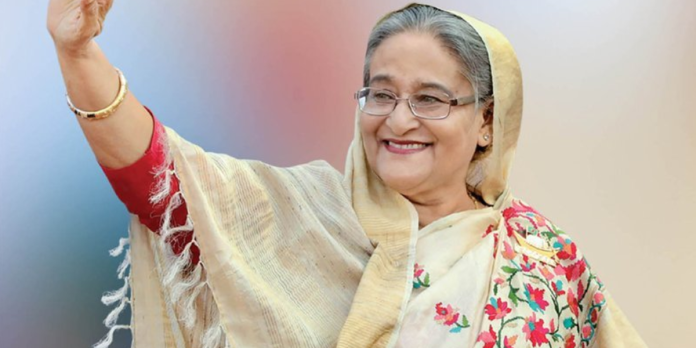Bangladesh, a nation with a rich history of political ebbs and flows, finds itself at another significant juncture. Sheikh Hasina, a seasoned politician and leader of the Awami League, has secured her fifth term as the Prime Minister. However, this victory is shrouded in controversy, with accusations of election irregularities and an opposition boycott casting a long shadow over the legitimacy of the process.
A Historic Win With Questionable Undertones
The victory of the prime minister of Bangladesh, Sheikh Hasina, marks a historic moment in Bangladesh’s political landscape, as she becomes the Prime Minister for a record fifth term. Her tenure has been notable for significant economic development and progress in various sectors.
However, the recent election results have raised numerous questions about the state of democracy in Bangladesh. The official voter turnout was reported to be around 41.8%, one of the lowest in the country’s history, raising concerns about the election’s inclusivity and fairness.
Boycott And Opposition’s Allegations
The main opposition party, the Bangladesh Nationalist Party (BNP), boycotted the election, describing it as a “sham” and questioning its integrity.
The boycott decision followed months of tensions, including the arrest of thousands of BNP members and claims of political repression. The opposition’s absence from the polls has led to debates about the representativeness of the election and the state of political pluralism in Bangladesh.
Reasons For The Opposition Boycott In Bangladesh
Bangladesh’s recent parliamentary election results were marked by a notable absence – the main opposition party. The Bangladesh Nationalist Party (BNP) boycotted the election, leading to a significant impact on the electoral process and the perceived legitimacy of the results.
- Core Reasons for the Boycott: The BNP’s decision to boycott stemmed from deep-rooted concerns about the fairness of the electoral process. They feared that the polls would be rigged in favor of the ruling Awami League (AL). This skepticism was echoed in their call to the public not to participate in the vote, claiming that the actual voter turnout was significantly lower than reported.
- Accusations and Concerns: The BNP’s leadership accused the government of staging a “managed election,” arguing that the real voters’ turnout did not exceed 2%. They expressed dissatisfaction with the government’s approach to political opposition, citing a history of silencing critics, curbing freedom of speech, and human rights violations. These allegations have been consistently denied by the Awami League.
- Political Landscape and Future Outlook: With Hasina’s extended tenure, political analysts express concerns about the government’s ability to navigate potential economic challenges and home-grown agitations. The BNP’s continued actions against the government to restore voting rights in Bangladesh indicate a turbulent political landscape ahead, suggesting a complex future for the country’s democracy.
Impacts Of Political Crisis On Bangladesh’s Democracy
The 2024 election in Bangladesh has significant implications for the nation’s democratic fabric. Critics argue that the low turnout and the opposition boycott point toward a weakening of democratic institutions and processes.
The absence of a strong opposition in the parliament could lead to a consolidation of power, potentially moving the country towards a more authoritarian governance model. This scenario raises concerns about the future of checks and balances in the political system.
International Reactions And Future Implications
The international community has reacted cautiously to Sheikh Hasina’s victory. Some countries have congratulated her, while others, including the United States and European Union, have expressed concerns about the election’s fairness and the political climate in Bangladesh.
The perceived lack of transparency and inclusivity in the election could affect Bangladesh’s relations with key international partners and its global image.
Wrapping Up
Sheikh Hasina’s win in the 2024 Bangladeshi election is undeniably a significant political event. However, the surrounding controversies and the opposition boycott present challenges to the perceived legitimacy of her government.
Moving forward, it will be crucial for the Awami League and Sheikh Hasina to address these concerns and work towards strengthening the democratic foundations of Bangladesh. The path ahead will determine not only the fate of the country’s internal political dynamics but also its standing on the global stage.












